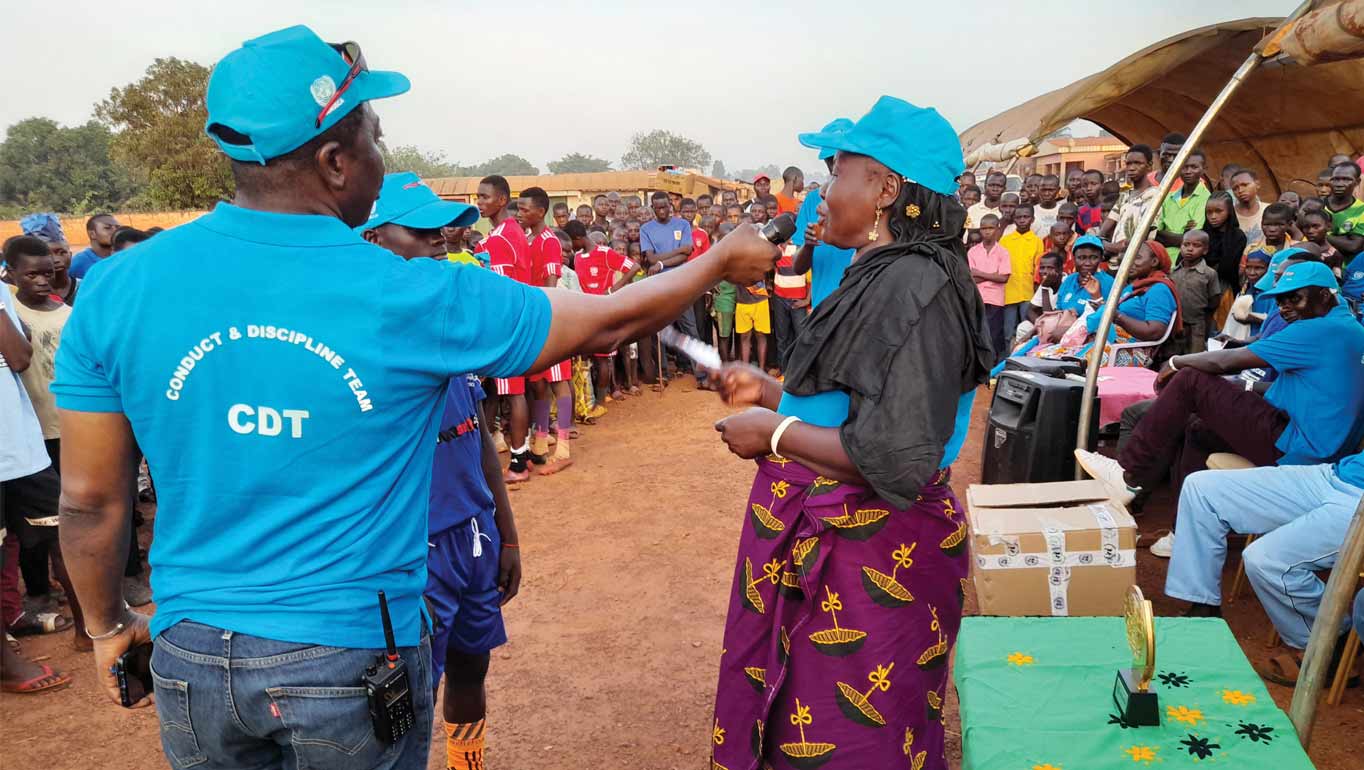The United Nations is committed to maintaining high standards of conduct and discipline among its personnel. This commitment is reflected in the establishment of Conduct and Discipline Teams and Focal Points across the organization, who play a critical role in promoting and upholding these standards in UN Headquarters and in field missions.
So, what exactly do Conduct and Discipline Teams do?
In short, they are responsible for ensuring that all UN personnel, whether civilian or military, adhere to the UN’s standards of conduct and related relevant policies and procedures. They approach conduct and discipline, including the UN’s zero tolerance policy against Sexual Exploitation and Abuse (SEA), across the full range of prevention, enforcement of possible misconduct, and supporting a victim-centered approach for victims of SEA.
What types of Conduct and Discipline Professionals are there?
The first are Conduct and Discipline Teams (CDT) in field missions. They are expert teams dedicated to working on personnel conduct issues. The size of a CDT depends on the mission and its footprint. They are responsible for overseeing all conduct and discipline-related matters in a specific field mission. The CDT Chief is supported by a team of conduct and discipline officers who, collectively, are responsible for prevention efforts such as providing training for peacekeeping personnel on UN rules related to our standards of conduct, as well as developing and implementing outreach and awareness raising activities for internal audiences and local communities. CDTs also receive misconduct allegations and ensure that they are appropriately referred for investigation. They track and follow up on cases of misconduct within the mission. They also support or coordinate efforts to assist and support victims of SEA. Overall, this work encompasses managing the risks of misconduct, including SEA, and is carried out in coordination with key stakeholders such as the Office of Internal Oversight Service, the Office of the Victims’ Rights Advocate, and the Office of the Special Coordinator on Improving the United Nations Response to sexual exploitation and abuse.
The second category are Conduct and Discipline Focal Points in UN Secretariat entities. They are designated and report to the head of their respective UN entity. In addition to their formal duties, they have the additional responsibility to provide advice and support on conduct and discipline-related matters.
In addition to responding to individual cases of misconduct, CDTs and Focal Points also play a key role in promoting awareness and prevention of SEA and other forms of misconduct. This includes providing training to UN personnel, engaging with local communities and partners, and promoting a culture of respect and accountability. CDTs and Focal Points do not, however, conduct any investigations.
Why are Conduct and Discipline Teams so important?
The answer is simple: they help to maintain the integrity and credibility of the UN and its mission. The UN is committed to promoting peace, security, and human rights around the world. Misconduct by its personnel undermines this mission, harms individual victims and erodes public trust in the organization.
SEA by peacekeepers can have devastating impacts on the lives and well-being of vulnerable populations, particularly women and children. CDTs help to prevent such harm by ensuring that all UN personnel are held to the highest standards of behavior and accountability.
In conclusion, the UN continuously reflects on and strengthens its approach to conduct and discipline, including by improving reporting mechanisms for victims of misconduct, increasing accountability for senior officials who fail to address misconduct, and implementing a zero-tolerance policy for SEA from the perspective of the rights of victims. CDTs play a critical role ensuring that the organization can continue to make a positive impact in the world. However, there is still work to be done to ensure that all staff members understand and adhere to their obligations and that the values are upheld in practice.
ALD Connect – the UN Secretariat Administrative Law Division Network – is a closed network of over 200 Conduct and Discipline personnel from over 90 UN Secretariat entities and field missions. It aims to foster learning, knowledge exchange and streamlining of policy tools and systems to address and combat all forms of misconduct and sexual exploitation and abuse.
If you don’t know who is the Conduct and Discipline Focal Point in your entity, write to: nermine.wally@un.org
To learn more about Conduct and Discipline in field missions, visit: conduct.unmissions.org



